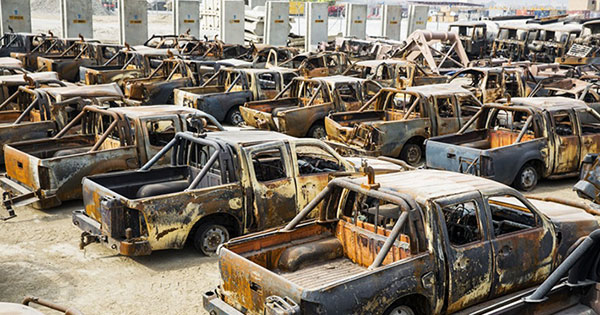Last year, the United States and the North Atlantic Treaty Organization (NATO) watched as the white flag of the International Security Assistance Force rolled up, marking the end of America’s “13-year combat mission of peacekeeping and reconstruction in Afghanistan.”
After spending nearly $1 trillion on the effort, President Barack Obama said that the International Security Assistance Force or ISAF was coming to a “responsible conclusion.”
As the US slowly withdraw its military presence in the war-torn country, Reuters’ Lucas Jackson went on to photograph the remnants of what Obama refers to as “the longest war in American history”.
The photos are stunning, no doubt. But there’s also a depressing feel to them, especially when you think about the thousands of lives lost, on both sides, in pursuit of (what I hope to be) peace. See for yourself.
“A large tent covered in insulating foam stands waiting to be demolished on the massive Bagram Air Field in the Parwan province of Afghanistan January 2, 2015. The base is being shrunk by demolishing large swaths of housing in order to hold roughly 13,000 foreign troops, mostly Americans, who will remain in the country under a new two-year mission named “Resolute Support” to train Afghan troops.”
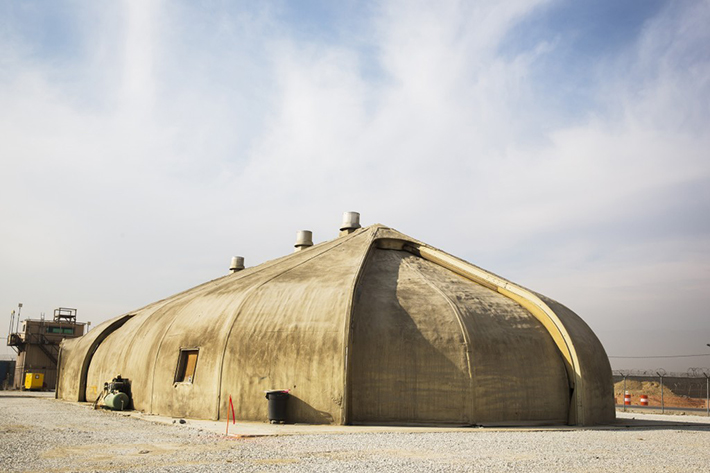
Reuters / Lucas Jackson
Sign posts declaring the distance from Bagram Air Field to various U.S. bases across the world are seen on the base in the Parwan province of Afghanistan on Jan. 2, 2015.
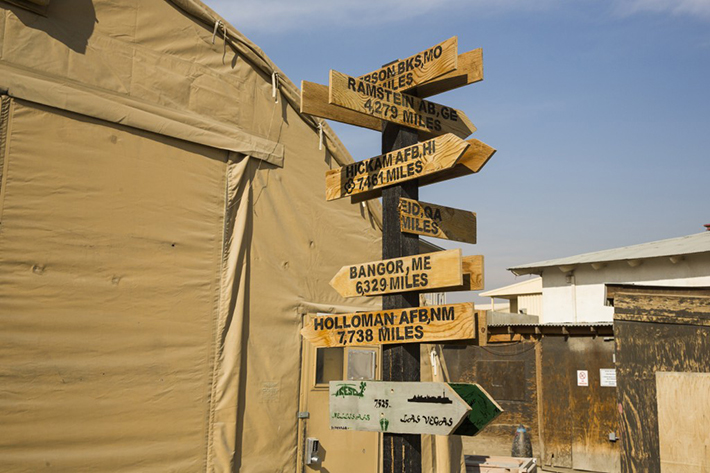
Reuters / Lucas Jackson
Burned Afghan National Army trucks wait to be demolished on the massive Bagram Air Field in the Parwan province of Afghanistan on Jan. 2, 2015.
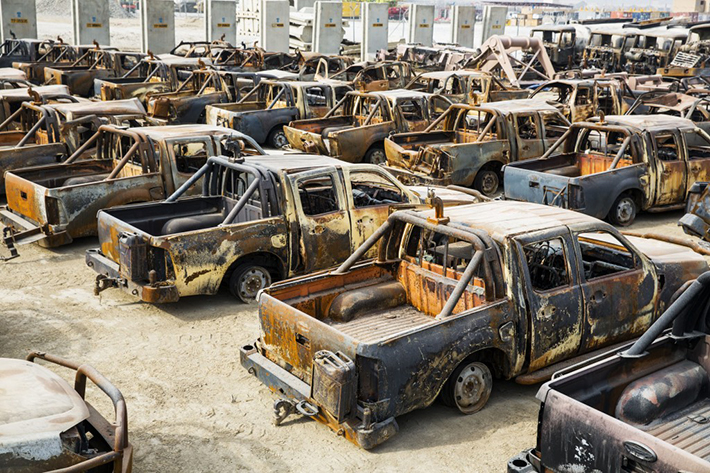
Reuters / Lucas Jackson
A door rests on the floor of a tent that has been dismantled as part of areas being demolished on the massive Bagram Air Field in the Parwan province of Afghanistan on Jan. 2, 2015.
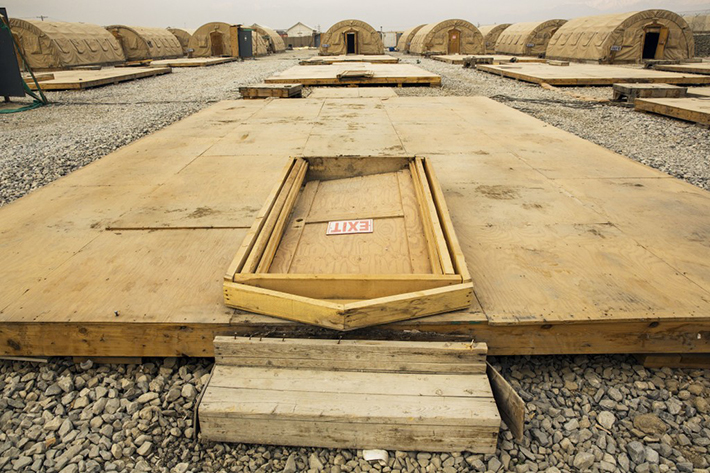
Reuters / Lucas Jackson
Cases of water bottles cascade out of shrink wrap in an area waiting to be cleared in order to shrink the massive Bagram Air Field in the Parwan province of Afghanistan on Jan. 2, 2015.
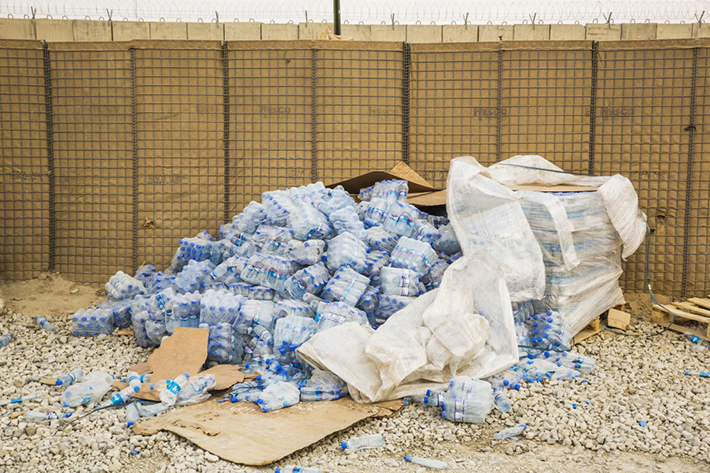
Reuters / Lucas Jackson
A view of sand bags filled with earth stand stacked around concrete shelters to protect from mortars and rockets inside of Bagram Air Field in the Parwan province of Afghanistan on Jan. 2, 2015.
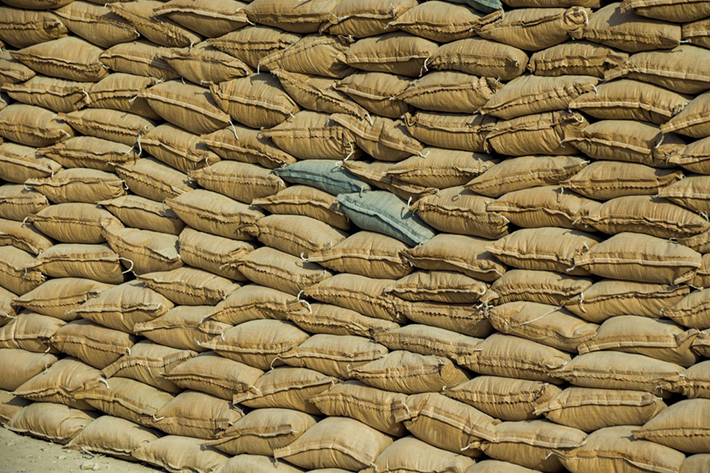
Reuters / Lucas Jackson
A stack of concrete barriers are stored in a yard after being removed during work to dismantle vast swaths of the massive Bagram Air Field in the Parwan province of Afghanistan on Jan. 2, 2015.
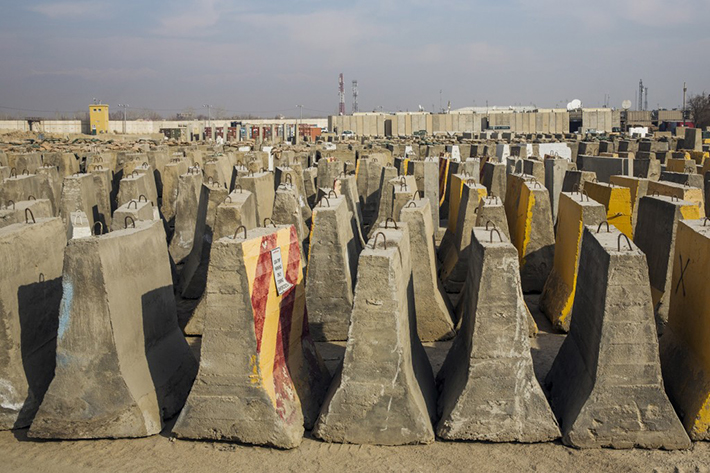
Reuters / Lucas Jackson
Tents stand waiting to be dismantled as part of areas being cleared in order to shrink the massive Bagram Air Field in the Parwan province of Afghanistan on Jan. 2, 2015.
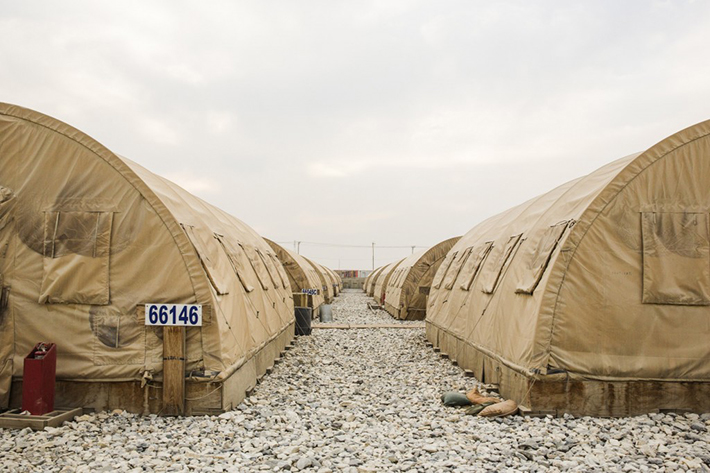
Reuters / Lucas Jackson
A stack of concrete barriers are stored in a yard after being removed during work to dismantle vast swaths of the massive Bagram Air Field in the Parwan province of Afghanistan on Jan. 2, 2015.
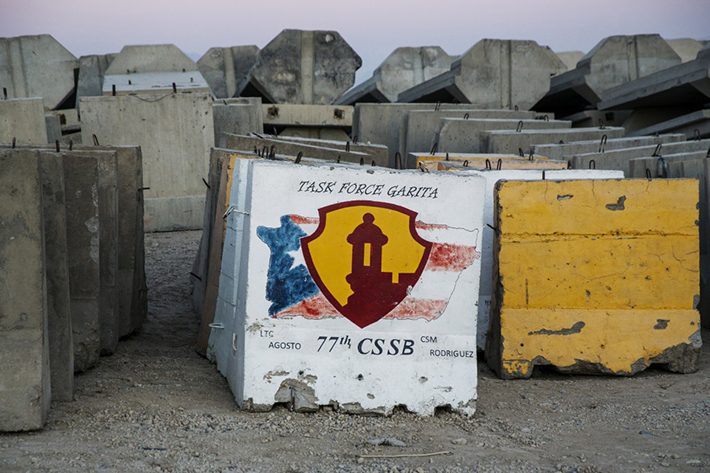
Reuters / Lucas Jackson
Russian guns are displayed in front of debris left over from temporary housing demolished during work to dismantle vast swaths of the massive Bagram Air Field in the Parwan province of Afghanistan on Jan. 2, 2015.
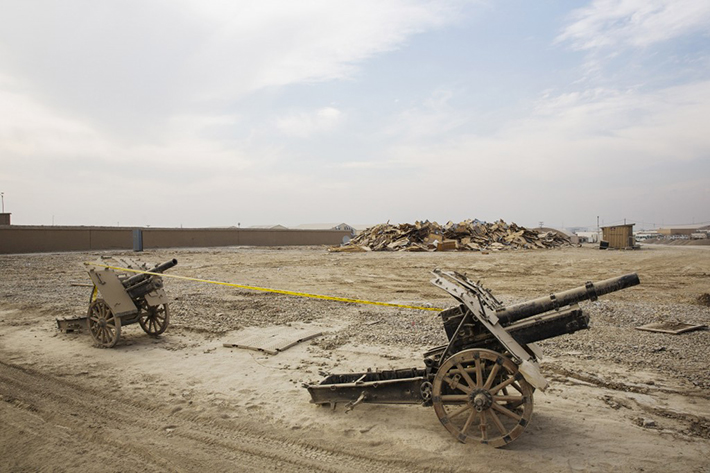
Reuters / Lucas Jackson
Doors of deserted containers made into housing stand waiting to be demolished on the massive Bagram Air Field in the Parwan province of Afghanistan Jan. 2, 2015.
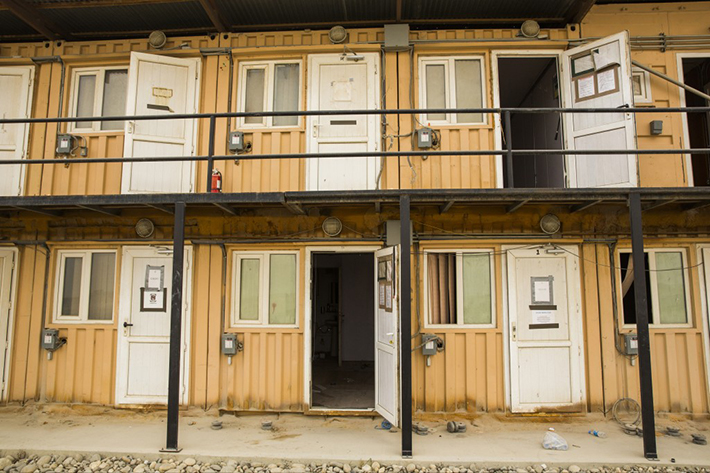
Reuters / Lucas Jackson
A massive field of demolished concrete lies inside of Bagram Air Field in the Parwan province of Afghanistan Jan. 2, 2015.
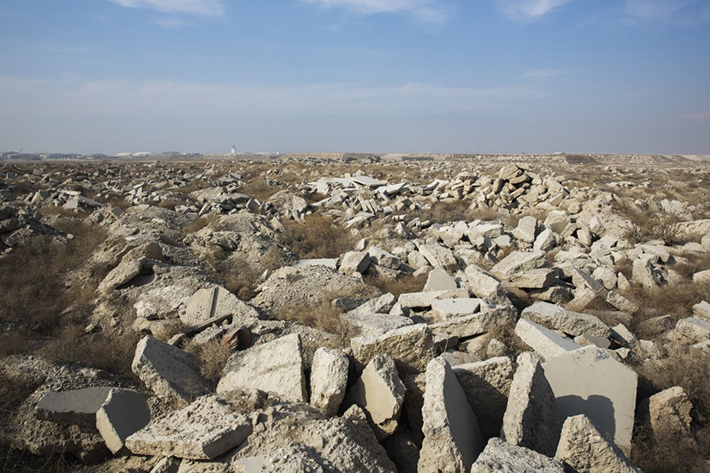
Reuters / Lucas Jackson
A message is scrawled on debris left over from temporary housing demolished during work to dismantle vast swaths of the massive Bagram Air Field in the Parwan province of Afghanistan Jan. 2, 2015.
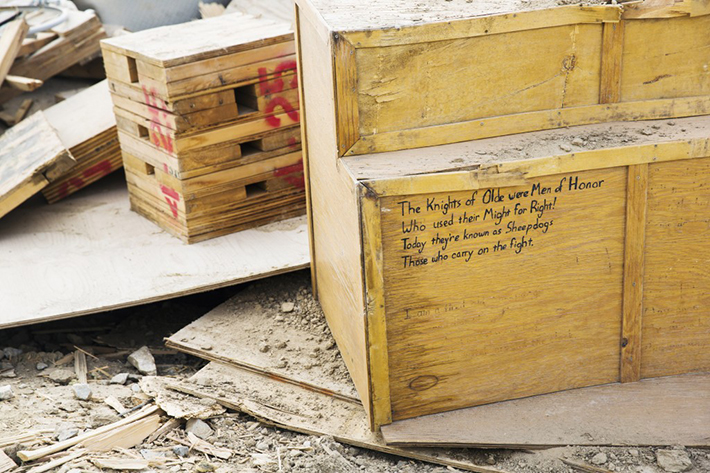
Reuters / Lucas Jackson
U.S. Army MRAP vehicles stand loaded onto local trucks before being shipped to Kuwait during work to shrink Bagram Air Field in the Parwan province of Afghanistan Jan. 2, 2015.
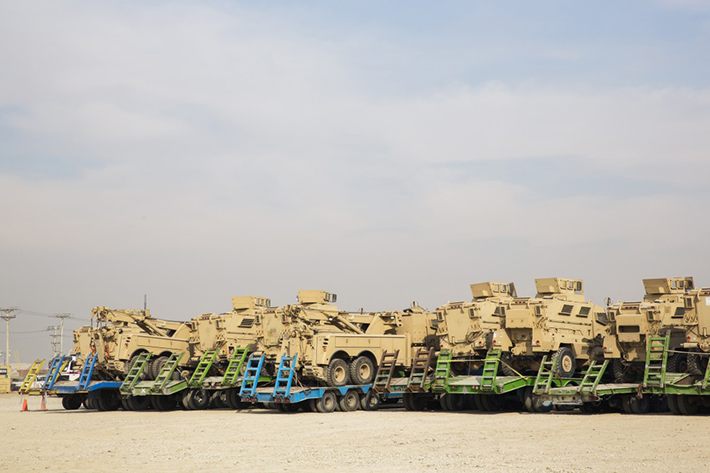
Reuters / Lucas Jackson
Shipping containers waiting to be either shipped back to the United States or disposed of stand stacked inside of Bagram Air Field in the Parwan province of Afghanistan Jan. 2, 2015.
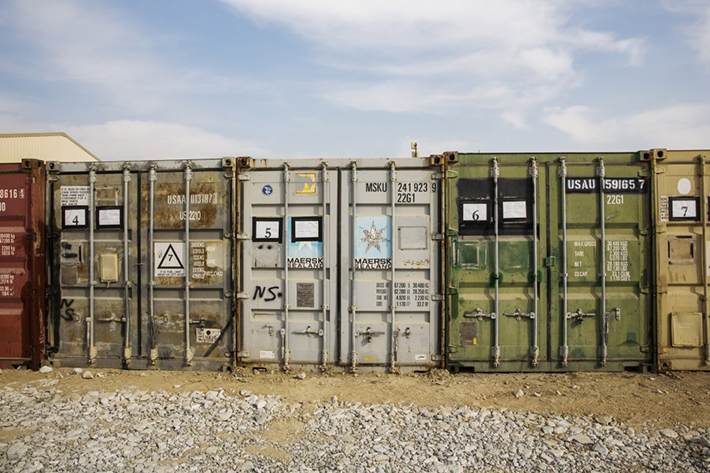
Reuters / Lucas Jackson
H/t PBS

